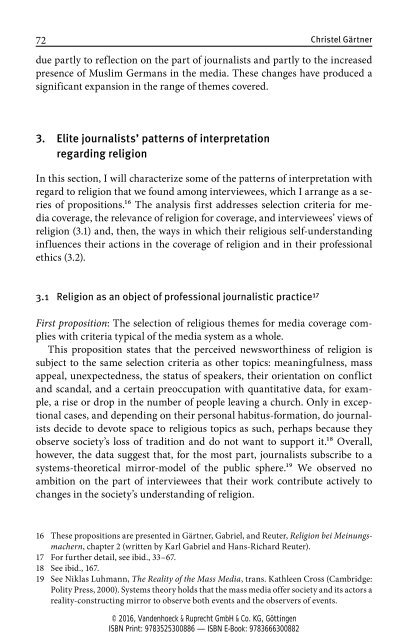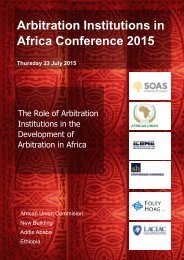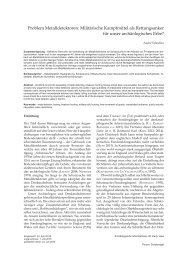Media and Minorities
9783666300882_ruhrmann_media_ebook_034247
9783666300882_ruhrmann_media_ebook_034247
You also want an ePaper? Increase the reach of your titles
YUMPU automatically turns print PDFs into web optimized ePapers that Google loves.
72<br />
Christel Gärtner<br />
due partly to reflection on the part of journalists <strong>and</strong> partly to the increased<br />
presence of Muslim Germans in the media. These changes have produced a<br />
significant expansion in the range of themes covered.<br />
3. Elite journalists’ patterns of interpretation<br />
regarding religion<br />
In this section, I will characterize some of the patterns of interpretation with<br />
regard to religion that we found among interviewees, which I arrange as a series<br />
of propositions.16 The analysis first addresses selection criteria for media<br />
coverage, the relevance of religion for coverage, <strong>and</strong> interviewees’ views of<br />
religion (3.1) <strong>and</strong>, then, the ways in which their religious self-underst<strong>and</strong>ing<br />
influences their actions in the coverage of religion <strong>and</strong> in their professional<br />
ethics (3.2).<br />
3.1 Religion as an object of professional journalistic practice17<br />
First proposition: The selection of religious themes for media coverage complies<br />
with criteria typical of the media system as a whole.<br />
This proposition states that the perceived newsworthiness of religion is<br />
subject to the same selection criteria as other topics: meaningfulness, mass<br />
appeal, unexpectedness, the status of speakers, their orientation on conflict<br />
<strong>and</strong> sc<strong>and</strong>al, <strong>and</strong> a certain preoccupation with quantitative data, for example,<br />
a rise or drop in the number of people leaving a church. Only in exceptional<br />
cases, <strong>and</strong> depending on their personal habitus-formation, do journalists<br />
decide to devote space to religious topics as such, perhaps because they<br />
observe society’s loss of tradition <strong>and</strong> do not want to support it.18 Overall,<br />
however, the data suggest that, for the most part, journalists subscribe to a<br />
systems-theoretical mirror-model of the public sphere.19 We observed no<br />
ambition on the part of interviewees that their work contribute actively to<br />
changes in the society’s underst<strong>and</strong>ing of religion.<br />
16 These propositions are presented in Gärtner, Gabriel, <strong>and</strong> Reuter, Religion bei Meinungsmachern,<br />
chapter 2 (written by Karl Gabriel <strong>and</strong> Hans-Richard Reuter).<br />
17 For further detail, see ibid., 33–67.<br />
18 See ibid., 167.<br />
19 See Niklas Luhmann, The Reality of the Mass <strong>Media</strong>, trans. Kathleen Cross (Cambridge:<br />
Polity Press, 2000). Systems theory holds that the mass media offer society <strong>and</strong> its actors a<br />
reality-constructing mirror to observe both events <strong>and</strong> the observers of events.<br />
© 2016, V<strong>and</strong>enhoeck & Ruprecht GmbH & Co. KG, Göttingen<br />
ISBN Print: 9783525300886 — ISBN E-Book: 9783666300882







